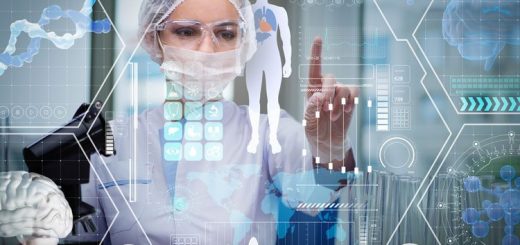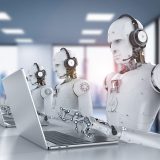Importance of Artificial intelligence in healthcare and medicine
Artificial intelligence can assist doctors in finding the right treatments among many options for cancer, Capturing data from various databases relating to the condition, AI helps physicians identify & choose the right drugs for the right patients, AI supports the decision-making processes for existing drugs & expanded treatments for other conditions, as well as expediting the clinical trials process by finding the right patients from many data sources.
Artificial Intelligence
AI is a branch of computer science dealing with solving problems using symbolic programming, It has evolved into a problem-solving science with applications in business, engineering, and health care, One application of AI is expert system development, An expert system consists of a knowledge base and inference engine, coupled with a user interface, A crucial aspect of expert system development is knowledge acquisition and implementing computable ways to solve problems.
Artificial Intelligence in healthcare
AI can improve care & curb the current trend of unsustainable healthcare spend, It can analyze relationships between prevention or treatment techniques and patient outcomes, It is used in treatment protocol development, drug development, diagnosis processes, personalized medicine, and patient monitoring and care, among others.
Artificial intelligence and its algorithms enable and complement human interaction with patients, a single platform would collect data from various disparate databases and would sense, understand, act, and learn, It can play a significant role in supporting healthcare initiatives relating to prevention & treatment plans in real-time, As healthcare value-based outcome demands continue to grow, healthcare manpower will be positioned to respond with AI tools.
AI is used to prevent medical errors & reduce hospital readmissions, By analyzing patient data from medical and medication errors, readmission root causes, and other internal and external databases, AI will identify and prevent high-risk patients from developing complications, it will provide prospective care guidance, and diagnostic support, among many other clinical applications, AI will eliminate redundancy in cost from duplicate or unnecessary procedures.
Most computer-generated solutions emerging in healthcare do not depend on independent computer intelligence, they are based on human-created algorithms, These are evidence-based approaches programmed by researchers or clinicians, After embedding known data into algorithms, computers can subsequently extract information and apply it to a given issue.
In oncology, using consensus algorithms combined with each patient’s clinicodemographic data and medical history, the computer can review the available treatment alternatives and recommend the most appropriate drug combination.
Machine learning has many potential applications for clinical trial research, advanced predictive analytics can analyze genetic information to identify the appropriate patient population for a trial, Machine learning can determine the optimal sample sizes for increased efficiency and reduce data errors such as duplicate entries.
Using AI, body scans can detect cancer and other diseases early, as well as predict health issues people might face based on their genetics, It uses each patient’s medical information and history to optimize treatment decision-making, It reportedly examined millions of oncology research papers in 10 minutes after which it successfully diagnosed the patient and recommended a personalized treatment plan.
Natural-language processing is a branch of AI that helps computers understand and interpret human speech and writing, It can analyze thousands of comprehensive electronic medical records and subsequently outline the appropriate steps for evaluating and managing patients with multiple illnesses.
AI-based apps such as Babylon have been designed to provide medical advice based on a database analysis of a patient’s symptoms and medical history, these kinds of apps could substantially reduce the rate of misdiagnosis.
Digital nurses monitor and follow-up with a patient between doctor appointments, The use of this technology could reduce unnecessary hospital visits and thus lessen the burden on medical professionals and save the healthcare system money.
There is a sensor or mobile application such as AiCure, and a patient’s medication use can be monitored in real-time by AI, This could be especially beneficial for patients in whom adherence is an issue and for clinical trials.
Artificial intelligence in medical field advantages and how AI medical diagnosis changes medicine
Applications of Artificial intelligence in the medical field and Healthcare













